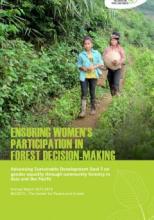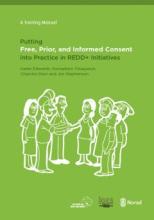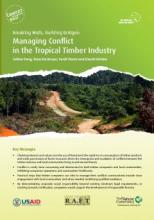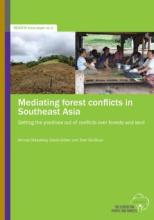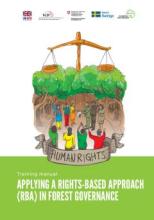/ library resources
Showing items 1 through 9 of 28.Community forestry – as promoted by RECOFTC – provides an effective and cross-cutting solution that is aligned with the SDGs. This includes SDG goal 5 to achieve gender equality and empower all women and girls.
Read RECOFTC’s digital annual report, “Building resi
This bulletin draws on country-level experience to share civil society perspectives on the challenges, opportunities, and possible approaches for pro-poor REDD.
Conflict over forest resources is one of the major challenges in forest management. Researchers have observed that the number and severity of forest conflicts in Asia has increased over time, and that forest conflicts are now widespread across the region.
The principle that indigenous peoples and local communities have a right to give or withhold their Free, Prior, and Informed Consent (FPIC) to developments affecting natural resources is not new.
Due to growing environmentally and socially aware markets on a global level, as well as on a regional level, and with more recent gains for democracy in the region, companies have to ensure their operations are socially and environmentally acceptable.
The high incidence of forest conflict in Southeast Asia underscores the need for conflict-transformation tools to maximize the positive impacts and reduce potential damage. Mediation is considered one of the most effective approaches in transforming conflict over natural resources.
Over 200 participants including 134 international delegates from 20 countries convened on 8–9 August 2011 in Bangkok, Thailand, for two days of deliberations on the potential of community forestry to address some of the biggest challenges we face today.
The Rights-based Approach (RBA) allows local communities, or others who are marginalized, excluded or discriminated (the rights holders), to exercise their rights; and for institutions, organizations or other agencies (the duty bearers) to provide support towards equitable and inclusive developme
Pagination
Land Library Search
Through our robust search engine, you can search for any item of the over 73,000 highly curated resources in the Land Library.
If you would like to find an overview of what is possible, feel free to peruse the Search Guide.

